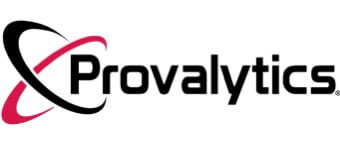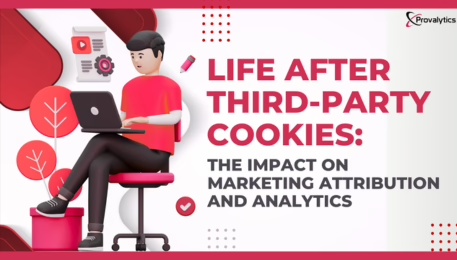Life After Third-Party Cookies: The Impact on Marketing Attribution and Analytics
The phase-out of third-party cookies marks a significant shift in digital marketing, particularly in the realms of attribution and analytics. Once vital for tracking consumer behavior across websites, cookies are being eliminated due to privacy concerns and regulations such as GDPR and CCPA. As a result, marketers face challenges in measuring the full customer journey, including audience retargeting, cross-device tracking, and performance attribution. To address these challenges, new approaches like first-party data collection, contextual targeting, AI-driven analytics, and Marketing Mix Modeling (MMM) are gaining prominence. Provalytics offers a privacy-first, AI-powered platform that helps brands navigate this new era, enabling effective marketing measurement without relying on third-party cookies. Embracing these innovative methodologies will allow brands to maintain effective campaign measurement while respecting consumer privacy.
For years, third-party cookies have been a cornerstone of online marketing, offering marketers insight into consumer behavior and enabling detailed attribution. But with third-party cookies being phased out, a new era in digital advertising is emerging—one that prioritizes privacy and shifts the paradigm of marketing attribution and analytics.
🚀 Yes, I Want The 2026 Playbook!
We’ll explore what this shift means for marketers, the impact on attribution models, and how solutions like Provalytics’ AI-driven, privacy-first measurement system can help brands navigate this landscape successfully.
The Third-Party Cookie’s Role and Why It’s Disappearing
Third-party cookies have long allowed marketers to track users across websites, creating detailed profiles based on their browsing behavior. These profiles made cross-channel marketing and audience retargeting possible, enabling campaigns tailored to specific consumer segments.
However, growing concerns about data privacy and security have led to increased regulation, such as GDPR in Europe and CCPA in California, and a collective move by major browsers to restrict third-party cookies. By 2024, Google Chrome will follow suit with Safari and Firefox, finalizing the shift away from third-party tracking and reinforcing consumer demand for privacy.
The Attribution Challenge: Understanding the Customer Journey
In a cookie-based world, marketers used multi-touch attribution (MTA) models to track consumers across various touchpoints, crediting each interaction in the customer journey. With third-party cookies phased out, MTA models lose much of their functionality, limiting visibility into the full customer journey and making it harder to measure the effectiveness of each touchpoint accurately.
The loss of third-party cookies directly impacts:
- Audience Retargeting: Without third-party tracking, retargeting users who have interacted with an ad becomes more challenging.
- Cross-Device Tracking: Previously, cookies helped unify a user’s interactions across devices. Without them, it’s difficult to connect these dots.
- Performance Attribution: Measuring the effectiveness of each channel and touchpoint becomes increasingly complex, risking inefficient spending in marketing budgets.
New Approaches to Attribution in a Privacy-First World
Although the cookie’s deprecation presents challenges, it also opens up new opportunities for more ethical and privacy-focused approaches to attribution. Here are some key methodologies and tools that are emerging as powerful solutions:
1. First-Party Data Collection
Many brands are shifting their focus to first-party data, which is collected directly from users with their consent. This data is not only privacy-compliant but also highly accurate, reflecting a user’s direct interactions with a brand. Building a strong first-party data strategy—via email sign-ups, customer feedback, and loyalty programs—can help brands maintain relevant insights even in a cookie-free world.
2. Contextual Targeting
Contextual targeting focuses on the environment where ads are displayed rather than the user viewing them. By placing ads alongside relevant content, marketers can still achieve precision in targeting without needing user-tracking technologies. This tactic also complies fully with privacy regulations, making it a sustainable choice for brands going forward.
3. AI-Driven Analytics and Modeling
AI-powered tools are redefining what’s possible in marketing attribution. For instance, solutions like Provalytics provide cross-channel marketing measurement that leverages advanced machine learning algorithms to analyze data while respecting user privacy. By incorporating these AI-driven models, brands can achieve attribution insights without relying on third-party cookies.
4. Marketing Mix Modeling (MMM)
Marketing Mix Modeling (MMM) is another approach seeing renewed interest. MMM uses aggregated data to analyze the impact of various marketing channels on sales and other outcomes. It relies on statistical models rather than tracking individual users, making it an ideal privacy-friendly tool for brands looking to attribute performance across channels without violating privacy laws.
Provalytics: Leading the Way in Privacy-First Marketing Measurement
As marketing moves into a privacy-centric age, Provalytics is committed to delivering innovative solutions that address attribution and analytics challenges head-on. Our AI-driven platform is built to function effectively in a world without third-party cookies, helping brands measure and optimize their campaigns across multiple channels while respecting consumer privacy.
Navigating the Future of Attribution
The move away from third-party cookies represents a new chapter in digital marketing, one that emphasizes consumer privacy and regulatory compliance. Although attribution may feel more complex in this new landscape, embracing privacy-conscious approaches like first-party data, AI-driven analytics, and Marketing Mix Modeling can offer brands an effective path forward.
At Provalytics, we’re here to help businesses adapt to this shift and thrive in a cookie-less world. By leveraging privacy-first, AI-driven solutions, brands can continue to gain valuable insights, measure campaign success, and engage their customers with integrity.


